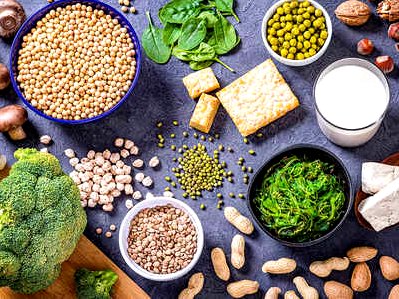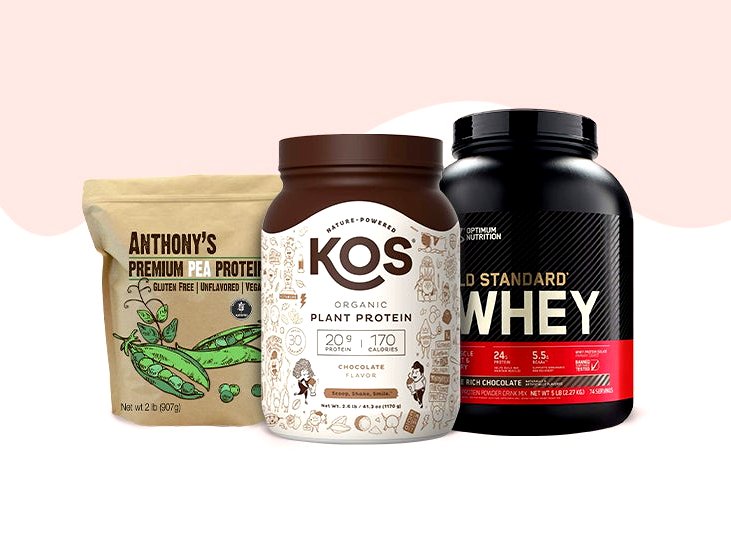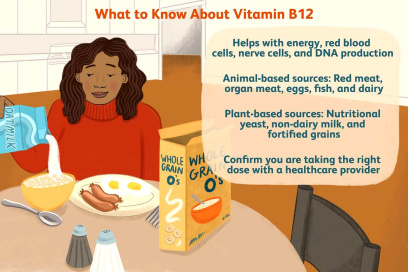Vegan lifestyle followers often face difficulty when it comes to getting enough protein in their diets, making attaining 50g per day an uncomplicated process. Building muscle or meeting daily requirements, vegan athletes need an understanding of how best to achieve such goals on plant-based diets. But fear not fellow vegans! With sufficient knowledge and making smart food choices, reaching that 50g threshold should not be an onerous task!
Plant-based protein foods, like tofu, tempeh and seitan are great ways for individuals looking to increase their protein consumption. Not only are these delicious dishes packed full of essential vitamins and nutrients; but if an instant protein boost is desired then supplements such as pea, rice or hemp protein could provide fast solutions.
Not only should your meals contain adequate protein intake, but the timing and scheduling are equally as essential for muscle growth and repair. By choosing appropriate recipes and meal ideas that include high-protein options into daily life can easily incorporate high protein intake.
Understanding how to obtain enough protein on a plant-based diet is of vital importance, whether or not you are an experienced vegan. Within this article, we will cover plant-based protein sources as well as vegan protein supplements; offer guidance for optimal timing; and present recipe and meal ideas to help reach your daily protein goal of 50g. So let's get going!
I. Plant-based Protein Sources
Plant-based proteins are an essential component of vegan diets, offering a diverse range of options that can help meet the daily protein goal of 50 grams for muscle growth, repair and overall health. Incorporating them into daily meals can make it easier to achieve this goal while providing additional health benefits, such as fiber, iron, and antioxidants that may promote immune health and overall wellness. Here are some top-rated plant-based sources that can be added to your diet to maximize protein consumption and reap all its inherent health benefits.
Tofu
Tofu is an adaptable soy-based food that is commonly found in vegan diet staples. It offers 20 grams of protein per 7-8 ounce block, making this plant-based protein source one of the highest protein concentrations on our list. With multiple preparation methods available, tofu is a versatile ingredient in any vegan diet.
Tempeh
Tempeh is another soy food derivative boasting high protein levels; it provides a nutty-flavored meat substitute that is an excellent alternative for tacos and burgers. Just one cup of cooked tempeh contains 30 grams of protein!
Seitan
Seitan is an ideal option for wheat lovers! This delectable plant-based protein is constructed of wheat gluten and boasts 21 grams of protein per three-ounce serving, making it an all-plant source with excellent nutritional benefits.
Lentils
Lentils are another impressive legume, providing more than just protein content. With 18 grams of protein per cup when cooked, lentils are high in fiber and iron and perfect for those looking to indulge in hearty meals while still remaining health conscious.
Beans and Chickpeas
Beans and chickpeas provide an easy-to-add legume option that fits seamlessly into meals and snacks. One cup of cooked beans or chickpeas provides around 15 grams of protein, making them a nutritious addition to dips, snacks, and stews.
Including these protein sources in your meals can provide an enjoyable way to meet daily protein requirements while expanding the variety of amino acids and nutrients you intake. By diversifying plant-based protein sources, we can efficiently achieve optimal health and well-being on all fronts. Now that we have become acquainted with these protein powerhouses let's investigate vegan protein supplements as potential complements to plant-based diets.
Learn more at Medical News TodayII. Vegan Protein Supplements
Acquisition of an efficient protein boost can often be a challenging endeavor, even with whole foods serving as excellent sources. When this becomes necessary, vegan protein supplements can prove extremely valuable; being made up of plant-based sources they could easily meet your protein requirements while adding some zest and variety to your diet.
Here are a selection of the most-sought-after vegan protein supplements:
- Pea Protein: Pea protein is an ideal choice for hypoallergenic protein supplementation. Its easy digestion makes it suitable for many different recipes and each serving typically provides approximately 20g of protein per serving - much like other vegan protein powder supplements.
- Rice Protein: Brown rice protein powder is another highly sought-after option for vegans, due to its easy digestion and gluten-free properties - perfect for people with special dietary restrictions and individual with gluten allergies. One serving typically equates to approximately 24g of protein.
- Hemp Protein: Hemp protein powder contains ground hemp seeds and provides an abundant source of essential proteins and fats. A single serving usually offers 15g of hemp protein powder!
Protein Timing and Its Significance for Muscle Growth and Repair
III. Protein Timing for Muscle Growth
Vegans wishing to build and maintain muscle should obtain adequate protein from food sources; however, timing of protein consumption plays a pivotal role in muscle protein synthesis - whereby your body develops new muscles tissues through protein production. Does timing matter for muscle building and maintenance?
Experts advise spreading protein intake steadily throughout the day in order to enhance muscle growth and repair, rather than eating all at once. A study suggests that stimulating muscle protein synthesis requires taking in 20-30g of protein per meal, so here are some strategies for timing protein consumption:
-
Include protein-rich foods at every meal:
Incorporating protein-rich foods into each snack and meal can ensure an ongoing source of amino acids throughout the day.
-
Take in protein after workouts:
Consuming protein after exercising stimulates muscle protein synthesis and recuperation. Drinking a protein shake or snacking on something with protein within 30 minutes after completing an intense session may be beneficial in helping muscles rebuild themselves more rapidly.

-
Spread protein intake over 3-4 hours:
If you want to optimize muscle protein synthesis, spreading out your protein consumption over this time span is ideal.
As well as eating protein at the right times and in the appropriate quantities, choosing the appropriate foods also matters. Whole foods like tempeh, tofu and lentils contain many amino acids and nutrients essential for muscle repair and growth.
By choosing protein-rich food items at the right times and in adequate amounts, vegans can effectively fuel their bodies to ensure muscle growth and repair. We will offer vegan-friendly meal ideas and recipes high in protein in this section.
Learn about Protein Timing for Muscle Growth at Beachbody On Demand.IV. Recipes and Meal Ideas
Integrating plant-based proteins into your diet requires some creativity; even the most adept culinary enthusiasts may struggle. But don't despair: we have you covered - here we offer up a host of recipe and meal ideas with high protein content and vegan-friendly goodness that you may find helpful in this journey.
Start your morning right
Indulge in tantalizing tofu scramble, decadent smoothie bowls packed with vegan protein powder or the creamy goodness of oatmeal enhanced with nut butter and chia seeds!
Lunch
Explore lentil- or bean-based soups, savor delicious veggie burgers or indulge in tofu sandwiches made of heaven; or satisfy cravings with quinoa salad featuring roasted chickpeas.
Dinner
Take the opportunity to expand your palette with seitan-fueled stir fry or aromatic and spicy curry dishes, tempeh tacos with an explosion of flavors or lentil shepherd's pie!
Snacks
Enjoy crunchy roasted chickpeas, satisfy your senses with fresh and crisp vegetable-topped hummus dip, or delight your taste buds with delectable almond butter paired with sugary banana slices! The possibilities for tasty snacks are truly limitless!
Meal planning and preparation is key to creating a protein-packed vegan-friendly diet. Batch roasting chickpeas, massive pots of lentil soup and tofu scrambles can make meal prep much simpler; also having high-protein snacks at hand will prevent unhealthy snacking habits from sneaking up on us!
Variating your protein sources is one way to reach your nutrition goals, so challenge yourself by exploring new recipe ideas and exploring various protein sources. Finding an ideal combination of high-protein foods can take some trial-and-error, but the rewards of optimal health are unmistakable - and worth every second!
As a vegan, meeting your daily protein requirements is essential for optimal overall health and muscle repair. Incorporating plant-based sources, supplement as necessary and timing your protein consumption appropriately are all ways you can ensure you're meeting them - but with our recipe ideas and food ideas you're sure to meet them with delicious plant-based meals that nourish both body and palate!
Conclusion
As you enhance your meals with plants, reaching 50 grams of daily protein may seem an intimidating feat. But you shouldn't fret: by including plant-based sources for protein intake as well as various plant-based protein supplements and paying attention to when your intake occurs, meeting this target won't be difficult at all!
Additionally, we have provided you with an assortment of meal ideas and recipes that are sure to tantalize your palate and fulfill your hunger with their irresistible flavors and nutritional qualities.
Keep in mind that protein is only one component of a healthy vegan diet; other key elements include nutrient-rich edibles, adequate water intake and regular physical activity. Committing to an overall wellness approach by selecting your meal options carefully will unlock a fulfilling and vibrant plant-based life.
Delight in plant-based proteins by exploring irresistible tofu, palpable tempeh and satisfying lentils on your dining tables. Monitor when and how often to consume protein to satisfy both taste glands and bodies alike with plant-based protein supplements - while challenging yourself and making mindful meal choices to find your healthier and happier self.




